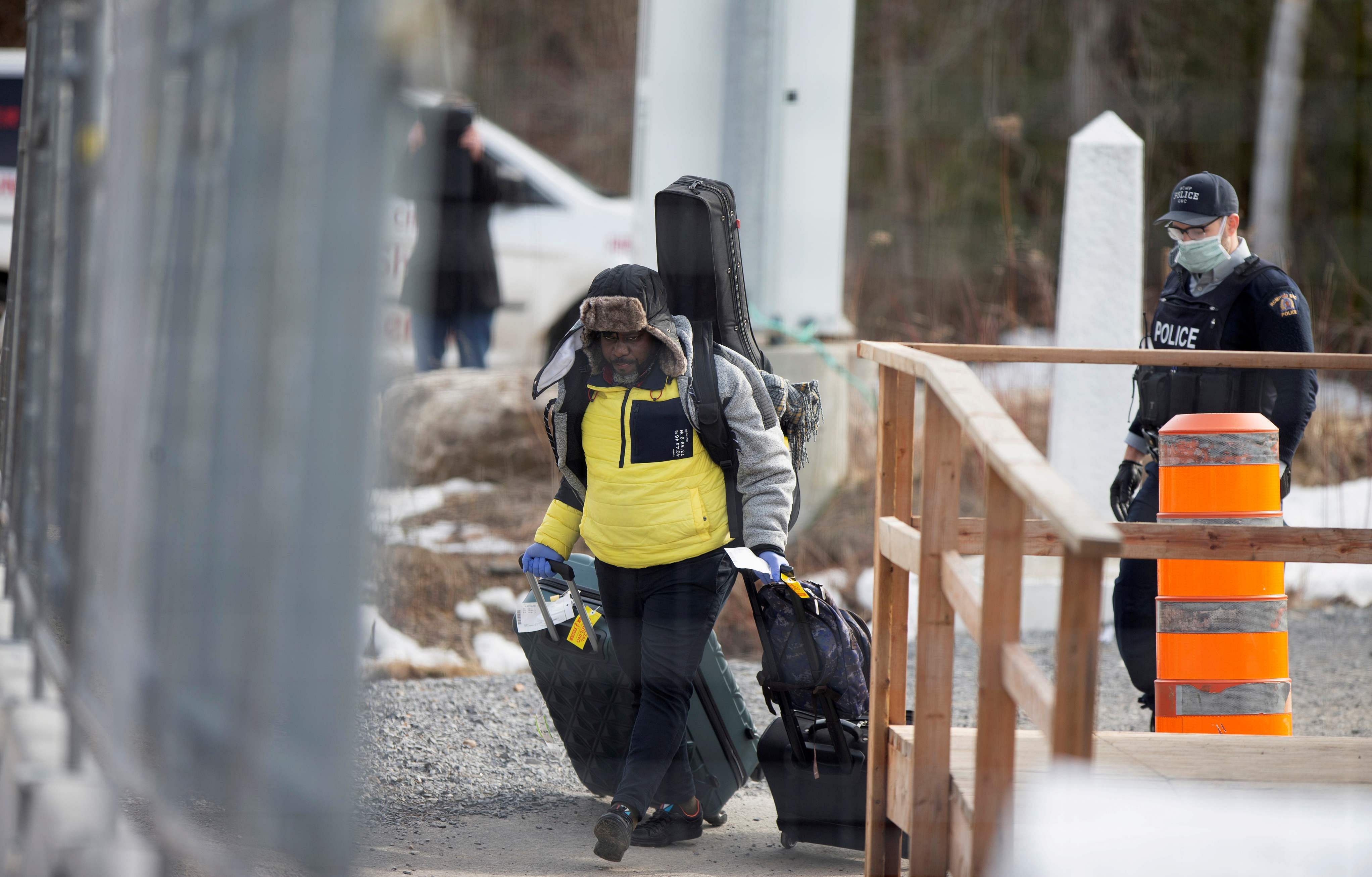
After years of asylum-seekers crossing the Canada-U.S. border illegally to file refugee claims, Canada is turning them around and sending them back to the United States, which says it plans to send them swiftly back to their countries of origin.
Canada said last week it will no longer accept irregular migrants trying to cross the shared border with the United States and will instead return them to US authorities, as a temporary measure amid the coronavirus outbreak.
"In the event an alien cannot be returned to Mexico or Canada, CBP will work with interagency partners to secure return to the alien’s country of origin and hold the alien for the shortest time possible," U.S. Customs and Border Protection (CBP) spokesman Michael Niezgoda told Reuters in an email.
"For those who remain in CBP custody, CBP will, to the extent possible, keep them separated. Symptomatic individuals will be referred to CDC and placed in isolation."
Since 2017 around 54,000 people have crossed the border into Canada, many saying they want to evade U.S. President Donald Trump’s crackdown on refugees and illegal immigrants.
Initially, in early March, Ottawa had said it would keep irregular migrants crossing the border in quarantine for two weeks. Last week, it said it reached an agreement with the United States to close the border to all but essential travel.
Amnesty International said the Canadian position violates its obligations under the 1951 UN refugee convention, including a clause on non-refoulement or the return of asylum seekers to places they fled due to persecution, often their home countries.
"It demonstrates a lack of leadership. It demonstrates a lack of legal commitment to the obligations Canada has signed up for," said Justin Mohammed, a human rights law and policy campaigner for Amnesty International Canada.
Immigration and Refugees Minister Marco Mendocino's office referred questions about irregular migrants to Public Safety Minister Bill Blair, who was not available.
Blair's spokeswoman said Ottawa was "committed to ensuring Canada remains a welcoming country for those fleeing war and persecution" and meeting its international commitments.
"We must note that these restrictions are temporary, and are constantly being re-evaluated to best reflect the advice of our public health officials," spokeswoman Mary-Liz Power said in an email.
Amnesty International considers aspects of U.S. immigration detention policy a violation of human rights, citing high detention rates, inadequate conditions and the practice of separating parents and children.
U.S. authorities said last week they will delay arresting some people suspected of violating immigration laws until after the coronavirus crisis.
Returning people to their country of origin will be tough given flight restrictions in the U.S, said Janet McFetridge, whose organization Plattsburgh Cares helps migrants on the U.S. side of the New York-Quebec border near Roxham Road, a popular crossing spot.
"If they need to return to wherever they came from, they're going to have a very difficult time getting there right now," she said. "It's an absolutely bleak situation."